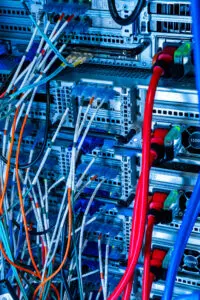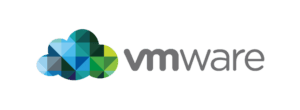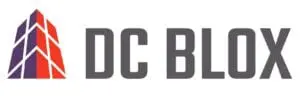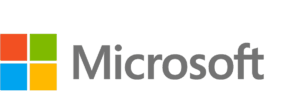Online security is a top priority for individuals and businesses alike. With the rise of cyber threats and the increasing use of cloud-based systems, it is more important than ever to ensure that sensitive information is protected. Multi-Factor Authentication (MFA) is a powerful tool that can enhance online security and protect against cyber threats. In this article, we will explore the importance of MFA for cloud-based systems and its relevance to Cloud Technologies.
Complete Article Outline
What is Multi-Factor Authentication (MFA)?
Multi-Factor Authentication is a security mechanism that requires the user to provide two or more forms of identification before gaining access to a system. This contrasts with traditional login methods, which typically require only a username and password. By requiring additional forms of identification, MFA adds an extra layer of security and makes it more difficult for unauthorized users to gain access to a system.
There are three types of identification required for MFA: something you know (such as a password or PIN), something you have (such as a smart card or security token), and something you are (such as biometric data like a fingerprint or facial recognition). By requiring two or more of these identification factors, MFA provides a higher level of security than traditional login methods.
Examples of MFA in action include entering a password followed by a verification code sent to your mobile phone or using a fingerprint scan to access a secure system. Authy and Google authenticator are both viable server and client-side software that can be used to implement MFA in your organization.
Why is MFA important to Cloud Technologies?
Cloud Technologies is a leading provider of IT services, including cloud-based systems, cloud phone systems, and VoIP hosted services. As a provider of these services, Cloud Technologies is responsible for ensuring that its client’s sensitive data is protected and secure.
The need for MFA in cloud-based systems arises from the fact that cloud-based systems are accessed over the internet, which can be a vulnerable access point for cyber threats. MFA can help protect against these threats by adding an extra layer of security to the login process.
Benefits of MFA for Cloud Technologies include:
- Enhanced security: MFA provides an additional layer of security that can help prevent unauthorized access to sensitive data.
- Compliance: Many regulatory frameworks, such as HIPAA and PCI-DSS, require MFA to be in place to ensure compliance.
- Ease of use: MFA can be integrated seamlessly into the login process, making it easy for users to adopt without disrupting their workflow.
How to Implement MFA
Enabling MFA varies depending on the service or platform being used, but the following steps can be applied to most online accounts
Steps to enable MFA on online accounts
- Log in to the account and navigate to the security or account settings
- Look for the option to enable MFA or two-factor authentication (2FA)
- Choose the preferred method of authentication, such as text message, phone call, or authenticator app
- Follow the prompts to set up MFA and verify the secondary factor of authentication
- Best practices for implementing MFA
To ensure MFA is being implemented effectively
- Use a strong and unique password for each account
- Use a reputable and secure authentication method
- Store backup codes in a secure location in case of device loss or failure
- Regularly review MFA settings and update them if necessary
- Tips for educating employees on MFA
Training your employees on the MFA implementation
When implementing MFA for a business or organization, it is important to educate employees on its use and benefits. Here are some tips for doing so:
- Provide clear and concise instructions on how to set up MFA
- Explain the importance of MFA for online security and how it can protect sensitive information
- Provide training on how to recognize and avoid phishing and other cyber attacks
- Encourage employees to report any suspicious activity or potential security breaches
Additional Cybersecurity Measures
In addition to MFA, there are other measures that can enhance online security, such as:
- Using a Virtual Private Network (VPN) to encrypt internet traffic and protect against hackers and eavesdroppers
- Keeping software and operating systems up-to-date with the latest security patches
- Using anti-virus and anti-malware software to protect against viruses and other malicious software
- Backing up data regularly to prevent data loss in case of cyber attacks or system failures
- Explanation of Managed Service Providers (MSPs) and their role in Cybersecurity
- Managed Service Providers (MSPs) are third-party companies that provide IT services, such as network monitoring, cloud computing, and cybersecurity, to businesses and organizations.
MSPs can play a crucial role in cybersecurity by:
- Implementing and managing MFA and other security measures
- Conducting regular security assessments and vulnerability testing
- Responding quickly to security incidents and providing remediation services
- Ransomware prevention best practices
- Ransomware is a type of malware that can encrypt files and demand payment in exchange for their release.
To prevent ransomware attacks, businesses and organizations can take the following steps:
- Use anti-virus and anti-malware software
- Back up data regularly and store backups in a secure location
- Train employees on how to recognize and avoid phishing and other cyber attacks
- Implement MFA and other security measures to prevent unauthorized access to sensitive information
Conclusion
In conclusion, online security is of utmost importance, especially for cloud technology companies. Multi-Factor Authentication (MFA) is a crucial tool in enhancing online security and protecting sensitive information from cyber-attacks. By implementing MFA and other cybersecurity measures, such as VPNs, anti-virus software, and MSPs, businesses and organizations can reduce the risk of data breaches and other cyber attacks. It is important to educate employees on the importance of online security and to review and update security measures to ensure maximum protection regularly.










